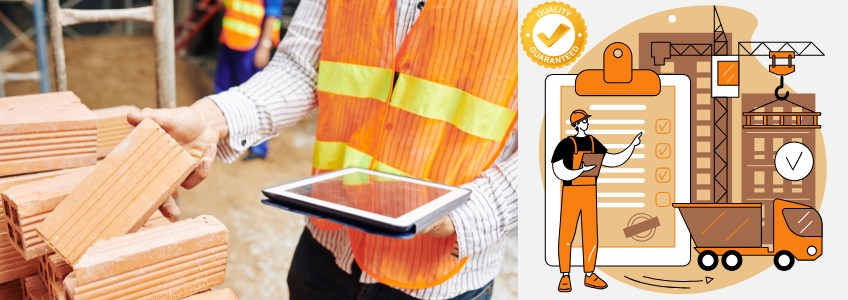Introduction
India is one of the fastest-growing economies and its infrastructure, particularly roads, plays a pivotal role in supporting this growth. The government has committed to improving and expanding the road network under various initiatives like the Bharat Mala Pariyojana, Pradhan Mantri Gram Sadak Yojana (PMGSY), and the National Highways Development Project (NHDP).
While these projects are crucial for boosting economic activity, they often face several challenges. In this blog, we will discuss in detail the five common problems that road construction projects in India often encounter.
1. Delays Due to Land Acquisition Issues
One of the most significant hurdles in road construction projects in India is the acquisition of land. Roads often need to pass through densely populated areas or agricultural land, leading to disputes and delays in obtaining the necessary land. Landowners may resist selling, and the compensation process can be slow and contentious.
Impact:
- Time Delays: Land acquisition can delay project timelines by months or even years.
- Increased Costs: Legal battles and compensation packages lead to additional unplanned costs.
- Community Resistance: In some cases, protests from local communities can halt projects.
Solution:
- To minimize these issues, proper stakeholder engagement, transparent compensation models, and the use of digitized land records can speed up the process.
- Government initiatives, like the Land Pooling Policy, are also beginning to help streamline acquisition processes.
2. Funding and Budget Overruns

Road construction projects in India often experience budget overruns due to fluctuating material prices, unforeseen challenges, and inefficient project management.
Contractors may struggle to meet the budget due to cost escalation in raw materials like bitumen, steel, and cement. The financing of such large projects is also a significant challenge, with delays in disbursements and inadequate funds hampering progress.
Impact:
- Project Delays: Lack of sufficient funds or delayed funding can halt work temporarily.
- Cost Overruns: Increases in material costs or unforeseen technical issues may lead to higher-than-expected expenditures.
- Quality Compromise: To stay within budget, contractors might sometimes cut corners, affecting the road’s quality.
Solutions:
- Budget overruns can be avoided by robust project planning like Detailed feasibility studies, realistic cost estimations, and contingency planning for unforeseen events.
- Timely release of funds, exploring innovative financing models like public-private partnerships (PPPs), and utilizing technology for transparent fund utilization can also reduce cost overruns.
- Contractors can incorporate price escalation clauses in contracts to account for fluctuating material costs.
- Effective project management techniques can be implemented by using technology for better monitoring and control, and enhancing contractor accountability.
- Contractors can also conduct regular project reviews to identify and address potential issues early on.
3. Environmental and Regulatory Hurdles
Environmental concerns, such as deforestation, wildlife protection, and waterbody preservation, often cause delays in road construction projects in India. Road projects may require environmental clearances from various regulatory bodies like the Ministry of Environment, Forest and Climate Change (MoEFCC). These clearances can take time, and if not obtained, they can halt construction work.
Impact:
- Regulatory Delays: Projects can get stuck waiting for clearances, leading to prolonged construction timelines.
- Environmental Protests: Activists and local communities may raise concerns about the environmental impact, which can delay progress.
- Legal Challenges: Failure to comply with environmental regulations can result in legal action.
Solutions:
- Conducting comprehensive Environmental Impact Assessments (EIAs) early in the planning phase can help in identifying and mitigating potential environmental impacts proactively.
- Developing a more efficient, transparent and streamlined system for obtaining environmental clearance also reduces delays and uncertainty.
- Adopting eco-friendly construction practices, such as minimizing deforestation, avoiding sensitive areas, and implementing mitigation measures for wildlife and water bodies, majorly reduces the environmental impact.
- Road construction projects should utilize technology like Geographic Information Systems (GIS) and remote sensing to assess environmental impacts and monitor compliance.
4. Poor Quality of Construction Materials

In India, road construction often suffers from the use of poor-quality materials, whether due to cost-cutting measures or lack of strict enforcement of quality standards. Substandard materials, such as inferior-grade bitumen, poor-quality aggregates, or low-grade steel, can significantly affect the durability and safety of the road.
Impact:
- Road Damage: Roads built with low-quality materials may deteriorate faster, leading to frequent repairs.
- Safety Hazards: Poor-quality roads can lead to accidents and injuries, especially during monsoon season when roads become slippery.
- Increased Maintenance Costs: Roads made with subpar materials require frequent repairs, raising the overall cost of road infrastructure.
Solution:
- It is vital to enforce strict quality control and quality assurance (QA/QC) measures during procurement and construction.
- Using technology like smart sensors and drones for material testing and monitoring can ensure that the materials meet the required standards. ERPNext offers integrated quality modules for inspection and assurance.
- ERPNext also comes with wide variety of integrations capability.
5. Labour Shortages and Workforce Management
The road construction industry in India often faces issues related to labour shortages, poor workforce management, and inadequate skilled labor. The construction sector is highly dependent on migrant workers, many of whom may lack the necessary skills or may leave due to seasonal fluctuations. In addition, managing a large workforce across multiple sites can be complex, especially without a proper system in place.
Impact:
- Delays: Labor shortages and inefficiencies in scheduling can slow down project timelines.
- Reduced Productivity: Low-skilled workers or insufficient manpower can affect the quality and pace of work.
- Workforce Safety: The lack of proper training and inadequate safety protocols may lead to accidents and injuries.
Solution:
- To address labour shortages, road construction companies can focus on skilling programs and improve worker welfare.
- ERPNext Project management software and ERPNext HR management systems can help track workforce availability, skills, and safety compliance, improving overall productivity.
Conclusion
While road construction in India is essential for the country’s economic growth, the industry faces numerous challenges, including land acquisition issues, funding, environmental concerns, poor quality materials, and labor management difficulties. By leveraging modern tools and technologies—such as ERPNEXT systems, quality control standards, and skilled workforce development—these challenges can be mitigated.
Moreover, greater stakeholder collaboration and regulatory transparency can help expedite project timelines and improve overall project outcomes. Thus, by addressing these issues proactively, road construction projects can pave the way for a robust and efficient road infrastructure, ultimately contributing to India’s continued development.
If you are interested to achieve similar success stories, write to us!

